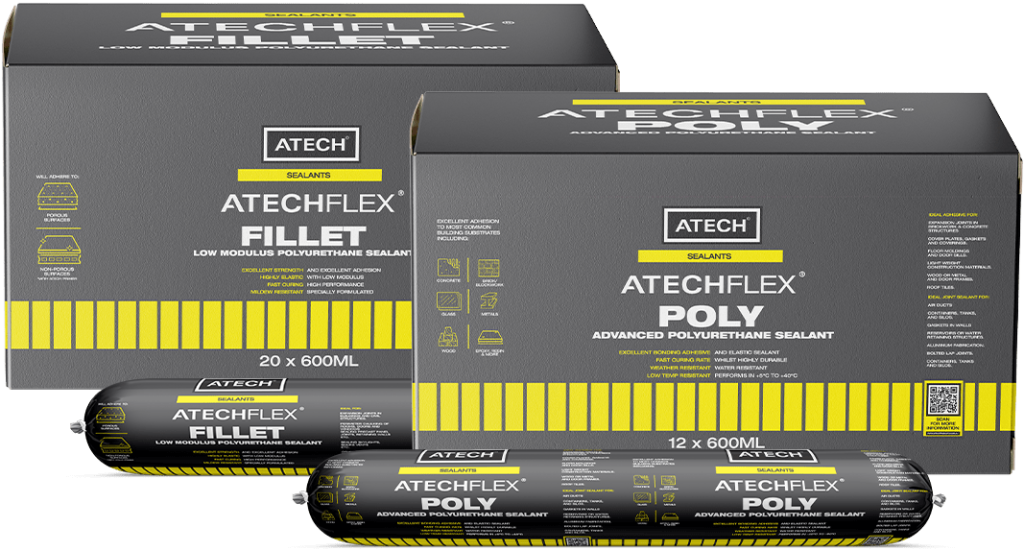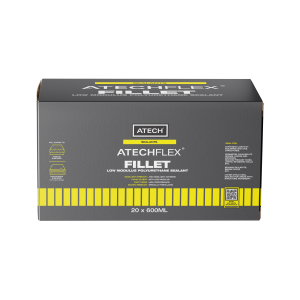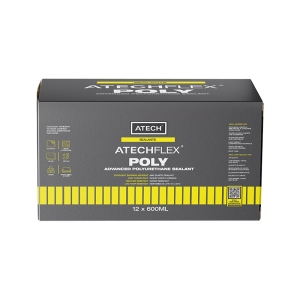
Atech®’s “AtechFlex®” sealant range is the perfect solution for construction expansion joints and for bond breakers that compliment Atech®’s “AtechProof®” waterproofing membrane range. Available in a colour range that suites application, AtechFlex® sealants have been proven to achieve the highest outcome in terms of flex and longevity.
TRUST AND PROTECT WITH ATECH®.


Atech®’s “AtechFlex®” sealant range is the perfect solution for construction expansion joints and for bond breakers that compliment Atech®’s “AtechProof®” waterproofing membrane range. Available in a colour range that suites application, AtechFlex® sealants have been proven to achieve the highest outcome in terms of flex and longevity.
TRUST AND PROTECT WITH ATECH®.


Atech®’s “AtechFlex®” sealant range is the perfect solution for construction expansion joints and for bond breakers that compliment Atech®’s “AtechProof®” waterproofing membrane range. Available in a colour range that suites application, AtechFlex® sealants have been proven to achieve the highest outcome in terms of flex and longevity.
TRUST AND PROTECT WITH ATECH®.


Atech®’s “AtechFlex®” sealant range is the perfect solution for construction expansion joints and for bond breakers that compliment Atech®’s “AtechProof®” waterproofing membrane range. Available in a colour range that suites application, AtechFlex® sealants have been proven to achieve the highest outcome in terms of flex and longevity.
TRUST AND PROTECT WITH ATECH®.

Showing all 7 results

X 20
$215.99
x 12
$158.99
x 12
$136.99
x 12
$136.99
x 12
$158.99
x 12
$158.99
x 12
$136.99Atech® Products foundations are built for the future of the Australian building industry in making Australia a better place. Atech® Products proudly acknowledges the traditional owners and custodians of the land which we work and live. With their rich culture, we pay respect to Aboriginal Elders both past, present and future. Atech® Products strive for a future based on sustainability, and assisting Australians to build in a way that helps generations to come.




©Copyright 2023 • ATECH® Products
Please fill in the form and our friendly team will be in touch